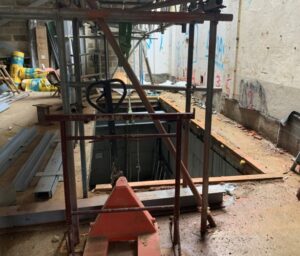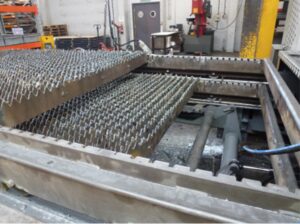Council fined following carbon monoxide leak at primary school
A Scottish local authority has been fined more than £13,000 after a carbon monoxide leak at a primary school in Bishopbriggs.
East Dunbartonshire Council pleaded guilty following the incident at Balmuildy Primary School in February 2020. A number of staff and pupils attending the school on 19 February 2020 reported feeling ill, experiencing symptoms such as headaches and nausea. Throughout the day, several pupils were sent home and staff had to take medication to relieve symptoms. The following day, testing for a gas leak revealed high levels of carbon monoxide present in areas of the school. The building was immediately evacuated.
An investigation by the Health and Safety Executive (HSE), in conjunction with Gas Safe Register investigators, found that one of the two auxiliary gas boilers present at the site was leaking carbon monoxide into the boiler room and the school buildings. The investigation found this was due to a lack of maintenance.
Had the faults with the boiler been found prior to the incident through the required routine maintenance, it would have been classed as immediately dangerous in line with the Gas Industry Unsafe Situations Procedure (GUSP). This would have necessitated the disconnection of the gas boiler until the boiler was repaired for further use.
HSE provides free guidance to dutyholders: Safety in the installation and use of gas systems and appliances. The guidance states that effective maintenance of appliances usually involves an ongoing programme of regular/periodic inspections, together with any necessary remedial work.
In the absence of specific manufacturers’ instructions, effective maintenance should include as a minimum:
- examination of the physical condition and safe functioning of appliance(s);
- installation pipework;
- ventilation and any flue for deterioration;
- carrying out performance tests; and
- taking the necessary remedial action.
East Dunbartonshire Council of Strathkelvin Place, Kirkintilloch, pleaded guilty to breaching Regulation 35 of the Gas Safety (Installation and Use) Regulations 1998. The council was fined £13,333 plus a victim surcharge of £999.98 at Glasgow Sheriff Court on 20 March 2025.
Speaking after the hearing, HSE inspector Stuart Easson, said: “This is the second time in five years that East Dunbartonshire Council have been handed a significant fine for failing to protect employees and children at a primary school under their control.”
“Although nobody suffered any serious adverse effects during this incident, we hope that this prosecution demonstrates that HSE will not hesitate to take action and that failures of this nature are simple not acceptable.”
Further information:
- The Health and Safety Executive (HSE) is Britain’s national regulator for workplace health and safety. We are dedicated to protecting people and places, and helping everyone lead safer and healthier lives.
- More information about the legislation referred to in this case is available.
- Further details on the latest HSE news releases is available.
- Relevant guidance can be found here: Safety in the installation and use of gas systems and appliances.
- HSE does not pass sentences, set guidelines or collect any fines imposed. Relevant sentencing guidelines must be followed unless the court is satisfied that it would be contrary to the interests of justice to do so. The sentencing guidelines for health and safety offences can be found here.



